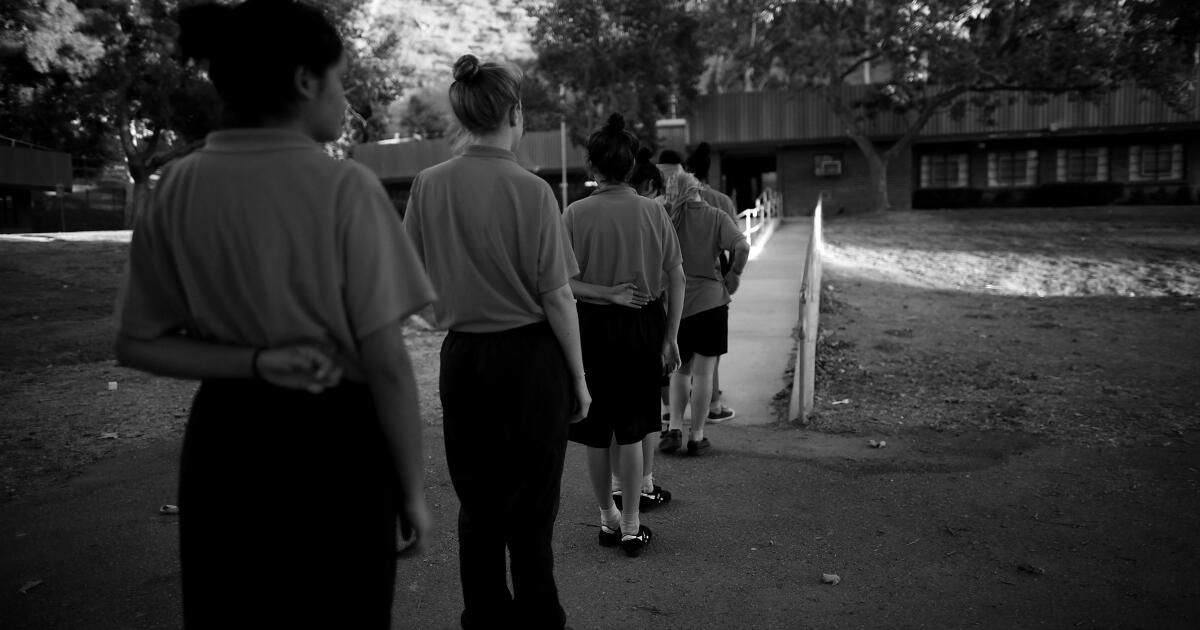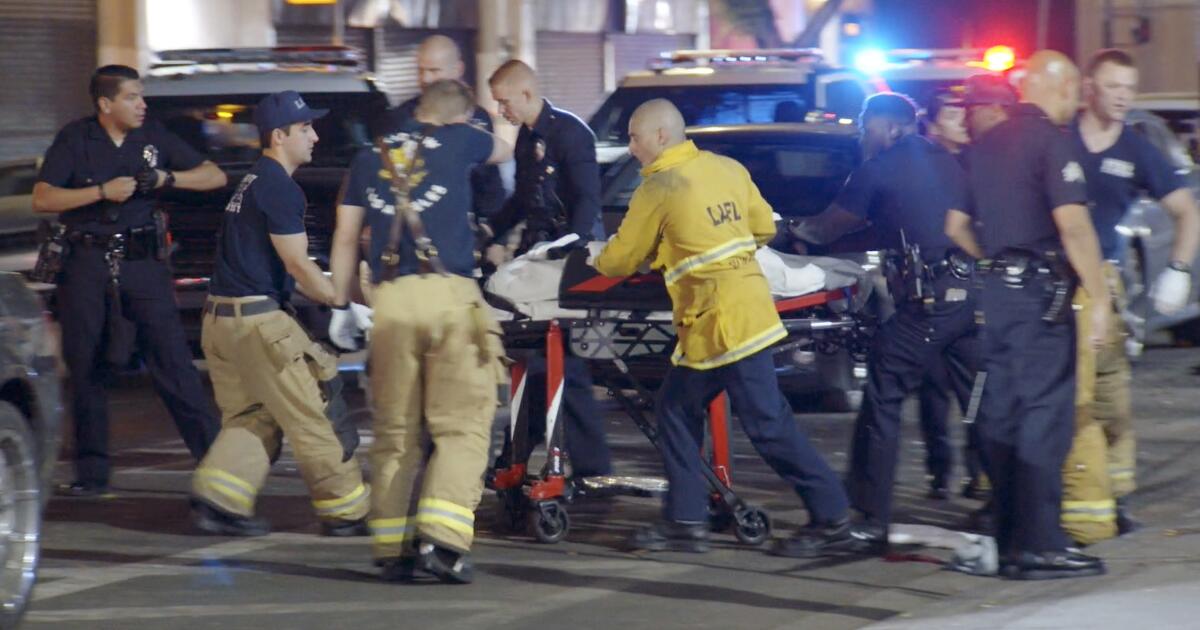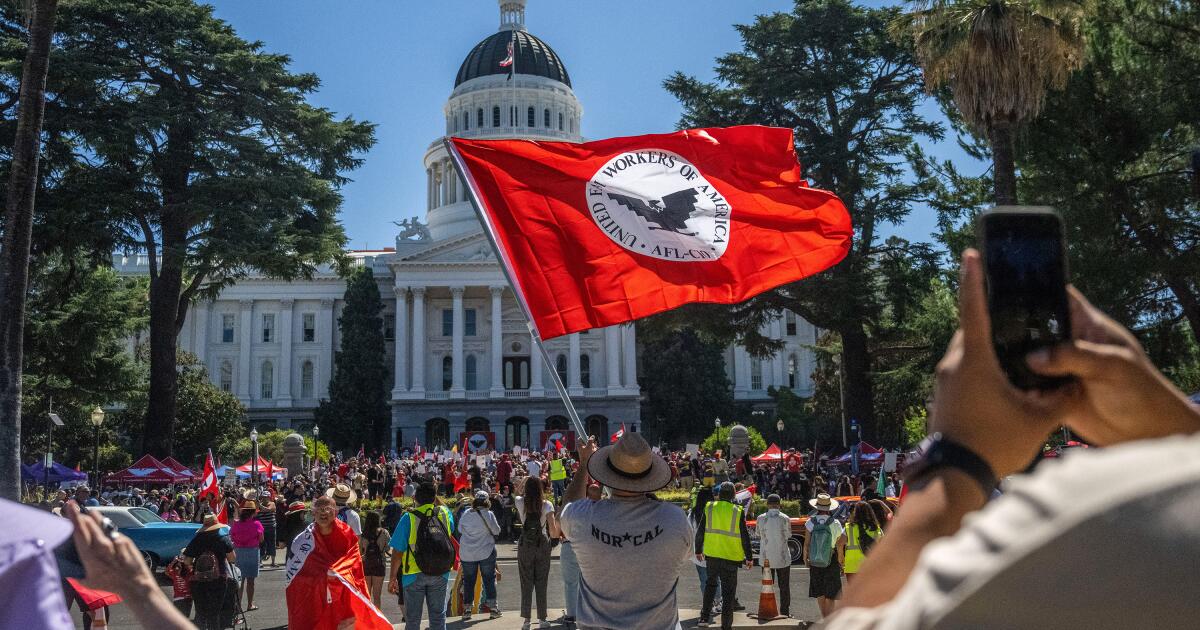Los Angeles County supervisors unanimously approved an $828 million settlement for alleged victims of child sexual abuse, ending the deal as questions grow about the legitimacy of some claims in a separate multimillion-dollar payout they agreed to this spring.
The deal approved Tuesday brings the county's spending on sexual abuse litigation this year to nearly $5 billion, with most of that total coming from a $4 billion deal made in April to resolve thousands of claims brought by people who said they were abused decades ago in county-run juvenile detention centers and foster homes.
The latest settlement involves similar claims brought by 414 clients of three law firms who chose to negotiate separately from the rest. The $4 billion settlement initially covered approximately 6,800 claims, but has ballooned to more than 11,000.
The broader settlement has come under scrutiny after The Times found nine people who said they were paid to sue. Four said they were told to make up the claims. All had lawsuits filed by Downtown LA Law Group, which represents more than 2,700 clients in the first settlement.
The firm has denied paying clients to file lawsuits and said it has “systems in place to help weed out false or exaggerated allegations.” The firm has asked the court to dismiss three lawsuits on behalf of allegedly fraudulent plaintiffs this month.
The Downtown LA Law Group will be required to detail any claims that come to it through recruiters, the county's top attorney said Tuesday. The firm has denied any wrongdoing.
(Carlin Stiehl / Los Angeles Times)
The settlement approved Tuesday involves cases only from Arias Sanguinetti Wang & Team, Manly, Stewart & Finaldi and Panish Shea Ravipudi and has no cases from DTLA. However, the firm took center stage Tuesday as supervisors pressed its lead attorney over how the lawsuits were being reviewed.
“What were we doing before this article?” said Supervisor Kathryn Barger, referencing the Times report from earlier this month.
The county was in a difficult situation, explained county attorney Dawyn Harrison. Many plaintiff attorneys did not want the county to interview their clients, he said. And a judge had temporarily halted the discovery process, providing the county with little information about the identities of the thousands of people suing.
Harrison said Tuesday that DTLA cases will now have to go through a “whole new level of review” beyond the standard investigation already underway by retired Los Angeles County Superior Court Judge Louis Meisinger. In addition to having a new retired Superior Court judge To review all of its cases, DTLA must provide the county with information about plaintiffs acquired through “a recruiter or vendor,” he said.
“DTLA is required to identify each recruiter it used, a list of each claimant filed per recruiter, information about funds that changed hands, and a sworn statement from each recruiter identifying what was done, what was said, and the money paid,” Harrison said.
It's an unusual request.
California law prohibits a practice known as capping, in which nonlawyers directly solicit or procure clients to register for lawsuits before a law firm.
DTLA has denied knowledge that any of its clients have received payments to sue and said the firm wants “justice for the real victims” of sexual abuse.
“If we ever became aware that anyone associated with us, in any capacity, did such a thing, we would terminate our relationship with them immediately,” the firm said.
The avalanche of lawsuits was sparked by a now-controversial bill known as AB 218, which changed the statute of limitations for victims of sexual abuse and created a new window to sue. The county, which is responsible for the safety of children within juvenile detention facilities and in foster homes, has received more than 12,000 complaints and counting since the law went into effect in 2020..
The fraud allegations now hanging over these cases were the fault of “an unwieldy law,” not the county's investigative process, Harrison said.
“AB 218 erased those barriers and allowed for decades-old claims that no one can meaningfully examine,” he said.
County lawyers and politicians have become increasingly vocal critics of the law, which they say has left them facing an avalanche of decades-old claims with no records. Supervisor Hilda Solis said she felt the county had become the “guinea pig” for the bill.
Joe Nicchitta, the county's interim chief executive, estimated that between $1 billion and $2 billion in county taxpayer money from the settlements will go to the attorneys.
“The law had some very noble intentions but it has been… and I'm just going to say what I think, hijacked by the plaintiffs' bar,” he said. “They do all the research, they do all the intake, they do a lot of advertising. They are incentivized to file as many cases as possible.”
Nicchitta said he had heard rumors that venture capitalists were snooping around Sacramento to find out “if we have enough cash to pay another deal, so they can fund a law firm to file another round of deals against us.”
“It's clear to me that the system is broken,” he said.
Courtney Thom, who was lead counsel in the Manly, Stewart & Finaldi cases, said she believed the county was blaming the new state law for the failures of its own lawyers.
“Blaming AB 218 and saying that's what enabled the fraud is just a pathetic attempt to avoid responsibility,” Thom said. “Our firm has been saying for two years that we are concerned about fraud.”
Mike Arias, who represents clients in the latest deal as a partner at Arias Sanguinetti Wang & Team, said the three firms involved stopped adding clients more than a year ago.
“That's a big distinction,” Arias said. “We said, at the time, that the number of plaintiffs would not change. Ethically, my view was that that is who we represent and who we are going to negotiate for.”
Arias said the assignment for the second settlement will be made by retired Orange County Superior Court Judge Gail Andler, who specializes in overseeing sexual abuse litigation. Potential payments will range from $750,000 to $3.25 million, he said.
Victims say the money represents a modicum of justice for the abuse they say they suffered while confined in county custody, little of which has been criminally prosecuted.
One man, who is part of the deal and asked not to be identified, said he has no idea what happened to the probation officer who he says raped him around age 16 while he slept in his cell at the Barry J. Nidorf Juvenile Center, unconscious from sleeping medication.
“I had no control in that place,” said the man, now 34 years old. “My body has never felt the same since.”

The county has launched an “AB 218 fraud hotline” where whistleblowers can report misconduct related to the flood of sexual abuse allegations.
(Rebecca Ellis/Los Angeles Times)
The county recently launched an “AB 218 fraud hotline” where whistleblowers can report misconduct related to the flood of claims. The county says it also plans to start a hotline for victims to safely report allegations of sexual abuse at its facilities.
“It is illegal for any person to file, pay or receive payment for making false reports of child sexual abuse,” states a sign now displayed atop the county website with a hand handing out hundred-dollar bills.
The county has also launched a website which asks people to report whether they were offered cash to sue, what law firms were involved and whether they received training, among other questions.
Supervisor Holly Mitchell, whose district includes the South Central social services office where seven people told The Times they were paid to sue, said she wanted the hotlines to advertise as aggressively as plaintiff attorneys did for their cases.
“You couldn't turn on an urban radio station without hearing a commercial announcing these cases,” Mitchell said. “I certainly hope that whatever we use, as we talk about our outreach, we support each other with the same strength.”












